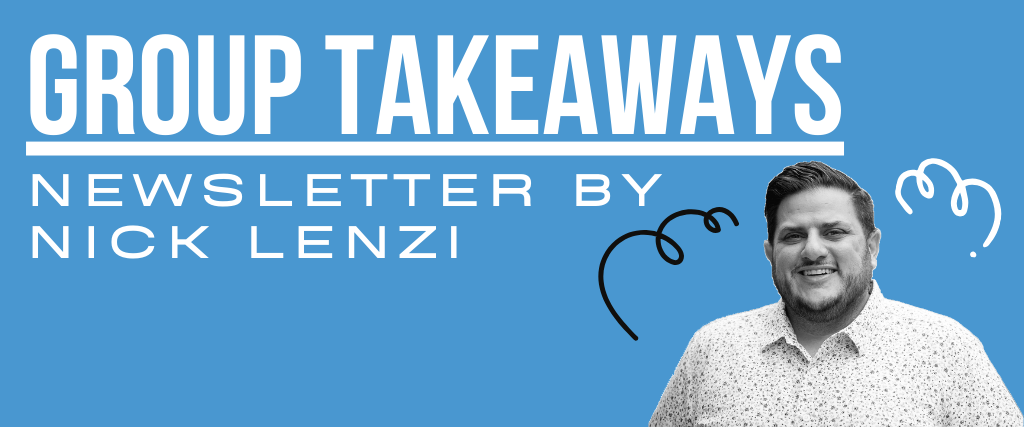Discipleship Is Not a Curriculum
Why Relational Discipleship in Small Groups Must Come Before Content in 2025
If you’re a small group leader or pastor, there’s a good chance you’ve asked yourself:
“Is our curriculum really discipling people?”
You’re not alone.
For years, churches have leaned heavily on curriculum to do the heavy lifting of discipleship. And to be fair, it worked in a different cultural moment. But in 2025, content is everywhere. Podcasts, devotionals, sermon clips, theological breakdowns. All available at any moment. We’re not starved for content. We’re starved for connection.
Curriculum is helpful. It’s just not the whole picture.
Churches often pick a study hoping to grow a specific area in someone’s life (and that’s not wrong). But here’s the challenge: in 2025, if someone is interested in a topic, they don’t need your group to access it. They can find it on YouTube, RightNow Media, or podcast app. Great content is everywhere. At any time.
But people? They show up with relational, emotional, spiritual, and physical needs, often all at once. And what they’re really looking for isn’t more information. They’re looking for someone who knows them. Someone who cares. Someone they can trust.
And if we’re honest, that’s incredibly hard to find in our culture right now. Maybe we’re in church so much that we forget how rare that kind of environment is outside the church.
Why Curriculum Alone Isn’t Enough
Most curriculum is designed to guide people toward the “right” answers. And while that can be helpful in learning, it’s not always helpful for growth. People need more than information. They need a space where they can ask honest questions, share real struggles, and not feel like they’re being graded for participation.
That’s what groups should offer. Not a perfect performance, but a real conversation with real people.
Curriculum doesn’t know your people. It wasn’t written with your community, your season, or your group in mind. It was created in Nashville or Dallas or Timbuktu for a general audience, and sometimes, that just doesn’t translate.
We just walked through Financial Peace University with our groups at church, which are made up primarily of single young adults. While it’s one of the most widely used curriculums in the country, 90% of the discussion questions were designed for married couples. Week after week, people disengaged. Not because they didn’t care about their finances, but because they couldn’t see themselves in the material.
And here’s the thing. Financial Peace University isn’t bad. It just wasn’t built with our people in mind. The content was created for a national audience, and honestly, for a different life stage. And because the format relies on facilitators rather than trained leaders, no one was equipped to bridge that gap and bring the content home for our group.
That’s the problem with curriculum at the center.
It’s not the curriculum itself. It’s when we rely on it to lead instead of empowering leaders who actually know their people.
People would rather follow a leader who is always real than one who is always right.
And most of the time, what your group needs isn’t a new video or a better book. It’s someone who shows up fully present.
From Content to Connection
If your group feels stuck or shallow, it’s probably not because you picked the wrong study. It’s more likely that your people are waiting for something deeper—something real.
They want to be known. They want to be challenged. They want to be led by someone who isn’t just guiding them through discussion questions but is invested in their growth.
That’s why trained, trusted leaders matter more than ever. A leader who knows their group will do more for someone’s spiritual life than the best-selling curriculum ever could. Because curriculum doesn’t ask how your week was. It doesn’t pray with you when life falls apart. It doesn’t celebrate next steps or walk with you through failure.
People do that. Leaders do that.
That’s where growth really happens.
If you want to lead a group that transforms lives, don’t start by picking the perfect resource. Start by becoming the kind of leader people trust. Create the kind of space where people feel seen and safe enough to open up. Focus less on finishing the questions and more on noticing what God is doing in the room.
Discipleship doesn’t happen because you chose the right study. It happens because you created the right environment.
Be the kind of leader people can trust.
Be present.
Be real.
That’s where discipleship begins.
💬 Discussion Questions for You and Your Team
Use these questions with your co-leaders, coaches, or fellow pastors to reflect on how your group environments are forming people.
Would you describe your group as more curriculum-centered or relationship-centered right now?
What do you think your group members are truly looking for—and are they finding it? If they’re not where are they turning to?
How would you assess the level of trust in your group right now?
What would it look like—or feel like—to know you’ve developed a meaningful group?




